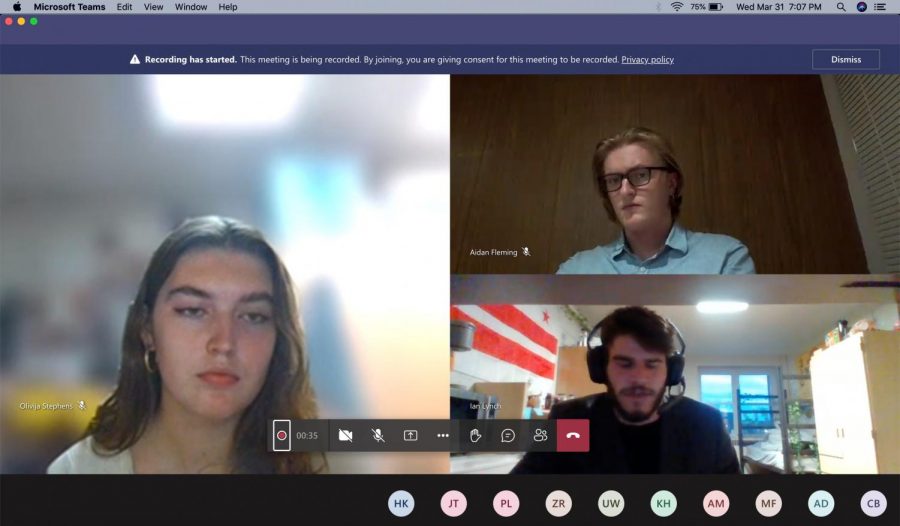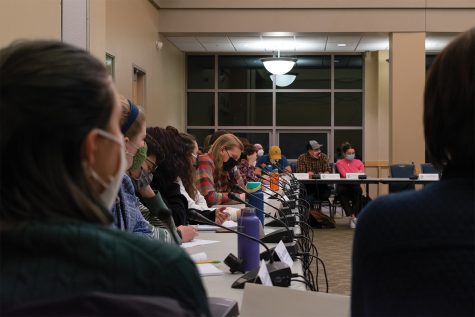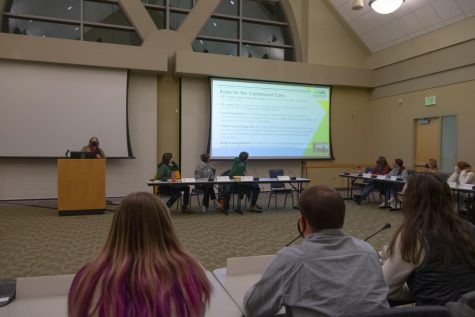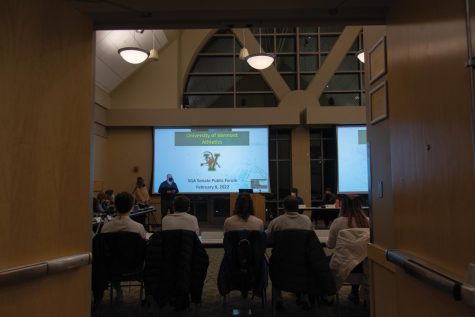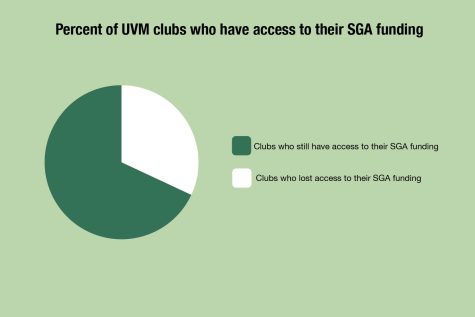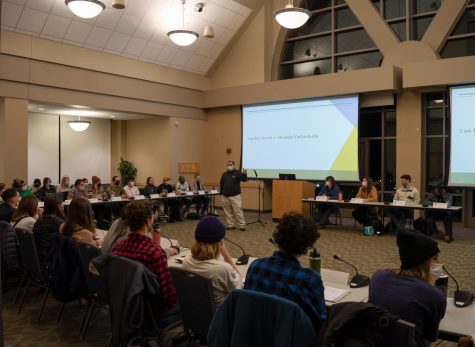SGA candidates for president and VP face off in debates before election
Presidential candidates Aidan Fleming and Ian Lynch and VP candidate Olivija Stephens talk about their plans if elected during the SGA debate March 31.
One ambitious first-year, one write-in candidate and one uncontested VP candidate faced off Monday and Wednesday night at the Student Government Association’s president and VP election debates.
First-year Ian Lynch, a current senator on SGA, is running against write-in candidate sophomore Aidan Fleming for the presidential position. Meanwhile, unchallenged junior Olivija Stephens, also a current senator, is running for VP.
Students received a link to vote for the next SGA president and vice president by email Thursday morning, which will remain open until 4 p.m. April 2.
In the debates, the three candidates talked on their political platforms and answered questions facilitated by SGA senator Aidan Doherty, this year’s elections administrator.
Each campaign emphasized a need for more transparency and communication between the student body and the administration.
“One of the main things that I would like to do as president is foster some more communication between the student body and the Senate,” Lynch said. “The Student Government has a big problem where we just assume that we know what the students want us to do on SGA but we really don’t.”
Lynch, who is currently on the Committee on Legislative and Community Affairs, also wants to work with the public relations committee to improve student outreach and mental health resources and ensure that all identity groups are involved in SGA conversations.
Fleming aims to not only increase collaboration between students and admin, but he also wants to rewrite the climate action plan and reallocate funding back into the College of Arts and Sciences after this year’s budget cuts, he said.
“There is a lack of transparency between the university and its students… community outreach is a must,” Fleming said.
Furthermore, Fleming explained that working on green community building projects within his hometown’s government has given him the experience to work with the administration to revamp the climate action plan, Fleming said.
Running for vice president, Stephens shares similar goals in her aim to restructure a framework of accountability within SGA.
When asked to speak on the topic of equity and inclusion, Stephens spoke out against the University’s tendency to tokenize marginalized groups on campus in their efforts to educate the masses on diversity issues.
“As a white woman… it’s not anyone else’s job to educate me,” said Stephens. “I’m not speaking for anyone or over anyone.”
Her experience on both the finance and ad hoc committees have given her not only the skillset to allocate funds, but also the authority to get students in contact with the administration, she said.
“We allocated a $2 million budget this year to about 150 clubs on campus, and that required meetings with probably dozens of clubs,” Stephens said.
Furthermore, Lynch said he recognizes the reality of SGA’s influence on administration and how important it will be for SGA to follow up with the administration after resolutions.
“We’ll pass a resolution to pat ourselves on the back and say good job, we get on to the next problem, and nothing changes,” Lynch said. “…at the end of the day we are an advisory group, and we don’t possess a ton of hard power to make change,” Lynch said.
In response to accusations that the University engages in “greenwashing” — performative environmental activism to create an image of sustainability rather than actual action — Fleming said that students must combat UVM’s hypocrisy.
“We preach environmentalism but invest in fossil fuels,” Fleming said.
According to July 14 press release from UVM spokesperson Jeffrey Wakefield, UVM divested the University’s endowment of fossil fuel investments, immediately ending new direct investments and pledging to fully divest from public investments by July 2023.
Stephens agreed with Fleming and continued to point out that UVM focuses too closely on individual sustainability rather than investing in corporate sustainability, she said.


